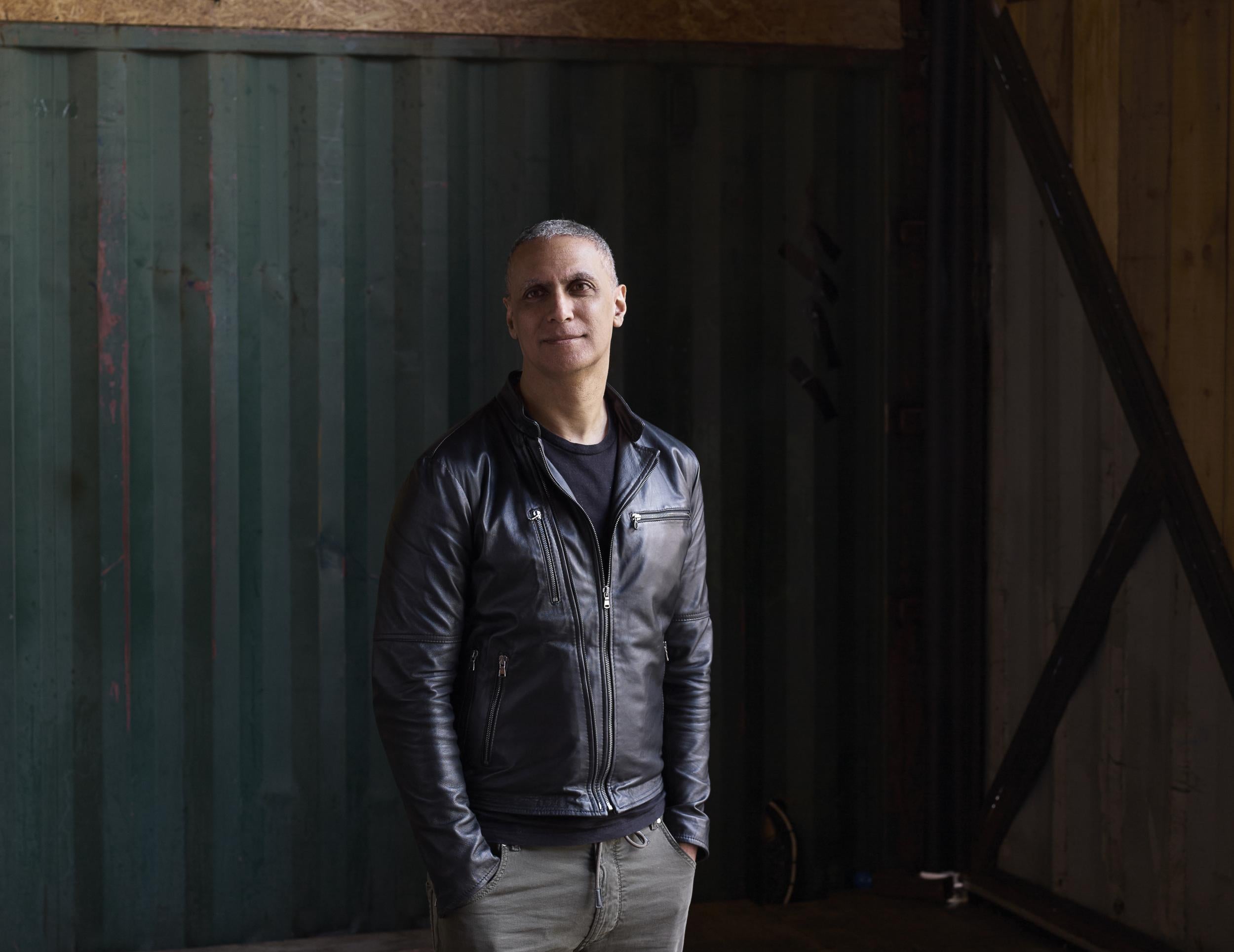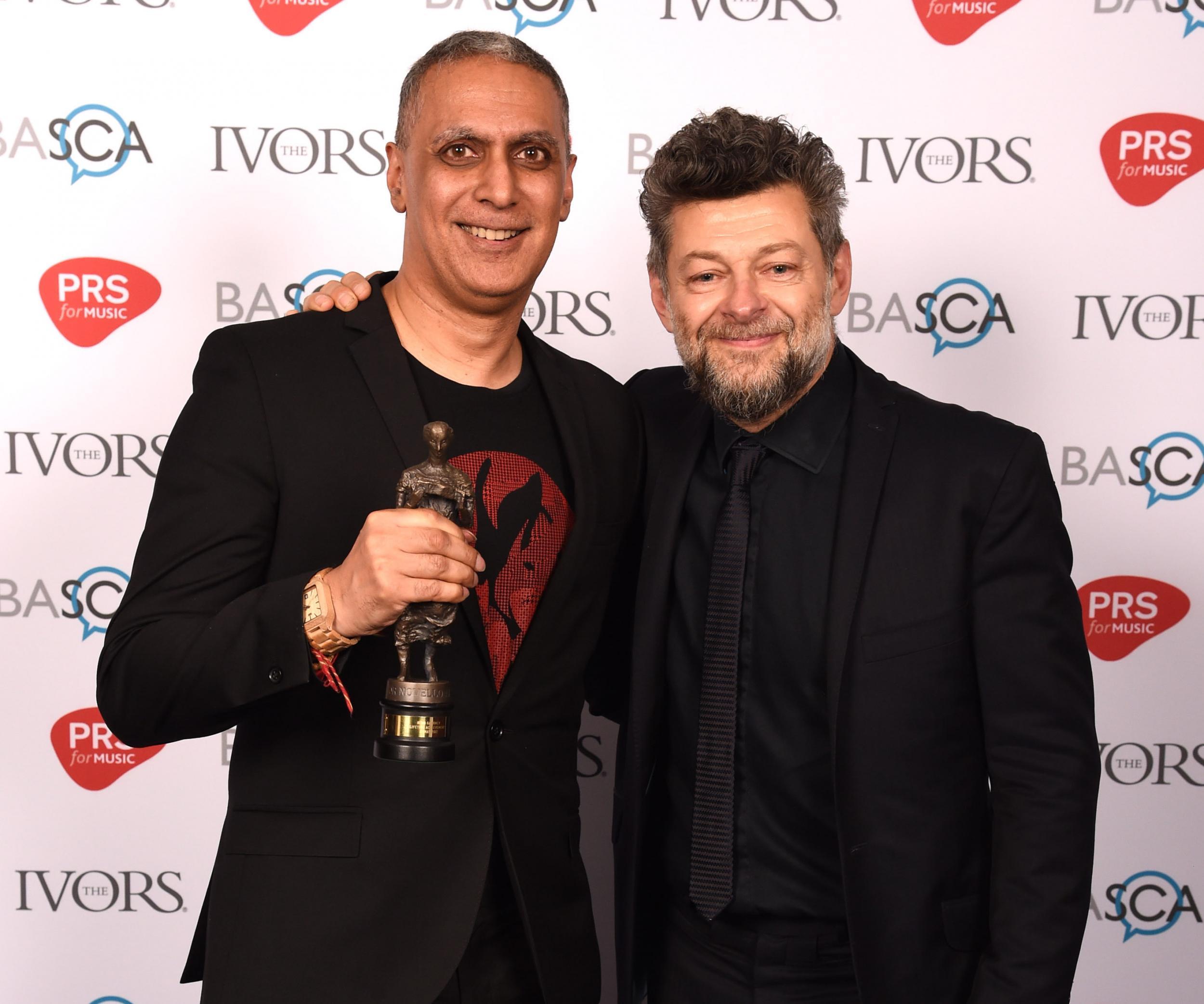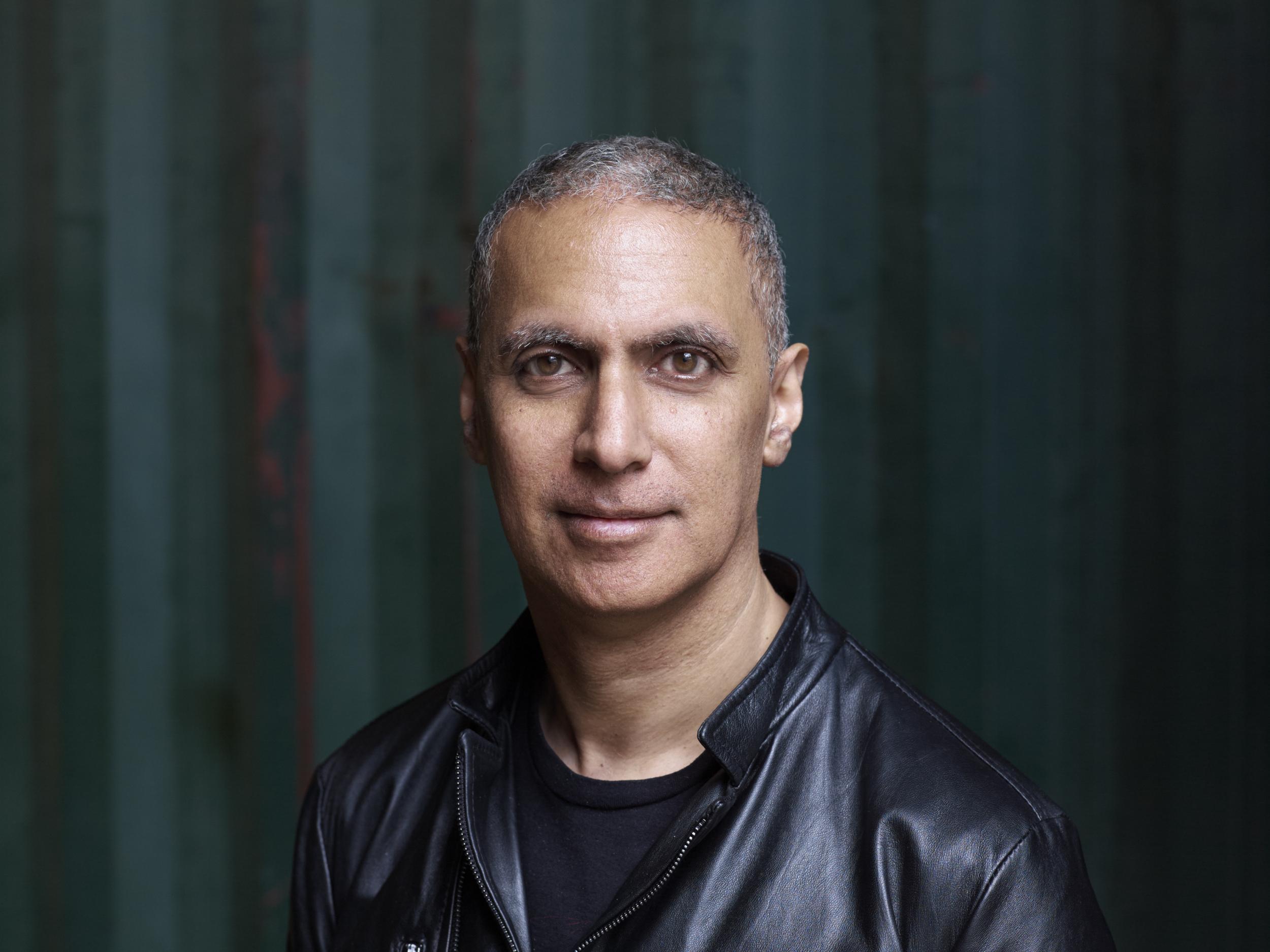Nitin Sawhney on Andy Serkis, Jungle Book and Brexit
The award-winning film composer talks about the catharsis of music and finding a melodic way to capture a personality

Composer Nitin Sawhney and actor-director Andy Serkis have known each other for 13 years. Serkis was already a fan of Sawhney’s work, recommending him for his first Ninja Theory game soundtrack, Heavenly Sword.
Sawhney is now behind the scores for two of Serkis’s own films: Breathe, starring Andrew Garfield and Claire Foy, and Serkis’s adaptation of The Jungle Book.
His soundtrack for Breathe is superb, evoking the optimism, hope and determination of its characters whilst also marking their darkest moments.
On the track “Getting Ill”, which is heard as Robin Cavendish (Garfield) falls gravely ill and is diagnosed with polio, Sawhney conveys the anxiety of the moment without applying melodrama.
“Meeting Baby Jonathan”, with the violin drawn out beautifully over singular piano notes, recalls Mark Bradshaw’s work on the film Bright Star; “Buying The House” uses Spanish guitar for a dreamy, romantic feel, and a thrumming double bass and cheeky clarinet on “Hospital Escape” adds a touch of classic British humour to the scene.
Rather than create soundtracks for specific characters, Sawhney chose to highlight very specific and important moments for characters in the film; not trying to dictate how the audience should feel but instead enhancing the various moods in each scene. He begins working with the script early on – particularly for Jungle Book: Origins where he had to compose music for people to dance or sing to.
“When you’re making an album it’s quite a cathartic experience, and you’re really trying to find a way to express how you feel,” he says at his studio in London. “When you’re working with a film, you’re really trying to find the vocabulary of someone else’s vision. You’re trying to interact directly with the director and their perception of the character and the different scenes.
“Andy [Serkis] has a very strong, eloquent way of explaining what he’s thinking with particular scenes – from that you’ll get some sense of what he’s looking for.”
He adds that Serkis appears to think of him as an actor as well as a composer – going to see him at a performance with Akram Khan – while the director is apparently an accomplished musician as well as a visual artist.
“He’s a really good sax player,” Sawhney reveals. “Most people don’t know that but he’s been playing for a long time. We get on in that way really well. I’ve got a couple of cameo moments in Jungle Book,” he pauses with a sheepish grin, “which might not make it to the final edit now I’ve said that…
![‘Andy [Serkis] has a very strong, eloquent way of explaining what he’s thinking with particular scenes – from that you’ll get some sense of what he’s looking for’](https://static.the-independent.com/s3fs-public/thumbnails/image/2017/10/26/17/nitin-sawhney-38-jpg-exlsv-suki-dhanda.jpg)
“What I like about Andy is that he’s very inclusive in the way he thinks – he likes to involve everyone. That’s what makes a great director to me, someone who knows how to fulfil their vision without compromising the skills of the people around him. He brings out the best in people because he’s so inclusive. So all the scenes that he directs have a real power to them because of that.”
Serkis later tells The Independent that Sawhney is “one of the world’s most unique creative polymaths”, adding: “His score for Breathe is an emotionally complex celebration of the possible, a subtle dance between the spirit of adventure, internal struggle to redefine a new existence, and the joy of truly living in the moment with wit and grace.”

Sawhney and Serkis’s next collaboration, Jungle Book: Origins, is set for release in 2018 and promises to be darker than Disney’s 2016 adaptation; a closer exploration of the original source material.
“Earlier on I was working on the theme for Mowgli, trying to find a strong theme for his character, and a connecting motif for some of the scenes, which I’m really into – finding a melodic way to capture a personality,” Sawhney says.
“With Andy, he gives you so much with a character – so with Mowgli it sings out what his theme would be because of the narrative, it really lends itself to it. I feel Mowgli is really driving this film, and that’s what I want to focus on.”
With conversations around a looming Brexit disaster, an increase in blatant xenophobia and the recent 70th anniversary of the partition of India, the timing for Serkis’s next film could not be more apt. And for Sawhney, who is British Indian, it was easy to identify with its central character.
“That’s the thing, feeling like an outsider – Mowgli trying to figure out where his identity lies, what his true heritage is,” he says. “And actually what does that mean, really? It’s quite powerful and it feels very real. There’s nothing sugar-coated about this. It feels like you’re in a visceral, dark and threatening world… it’s also about coming of age, puberty, and dealing with that. Mowgli needs to come of age in order to survive it.”
Sawhney, who turned down an OBE in 2007, appeared in panel talks around the partition anniversary and has strong opinions on immigration, Brexit and the notion of “empire”, observing how loaded the latter word still is – and how much it played a part in the thinking behind Brexit.
“It doesn’t have any relevance to anybody’s life now,” he says, and nods to the suggestion of a hideous irony about how empire – which saw the British invade almost 90 per cent of the world’s countries and try to enforce their own traditions and beliefs on other cultures – is now being used to decry multiculturalism and immigration.
“There’s no sense of justice. I don’t think justice was any part of the discussions of Brexit, and the motivations behind it,” he says. “People like Nigel Farage were given such a disproportionate amount of airtime – he still is. He’s become this commentator, but what is he? He’s nobody. His biggest claim to power of any kind is being a Member of the European Parliament. He sits there and pisses them all off for no reason, and gets paid to do it.”

Sawhney is more interested in crossing borders than closing them.
“That’s why, when I did the Prophesy album, I wanted to travel around the world and meet lots of different people. I do believe that if you’re going to use music from a particular culture you need to understand and care about it, and have respect. That you’re not just grabbing something. But I don’t want to be sanctimonious about it – there are DJs who do some amazing work doing that. It’s when people are pretending to be someone else, that’s where I might take more issue.
“It’s difficult to make rules about how this stuff works, but for me music should be a place of freedom as much as possible,” he concludes. “The music that I make is, to some people… they don’t understand all these different references that I have. But I’ve always felt this is the default position. You should be open to whatever influences come into your life.”
‘Breathe’ is out now in cinemas. Nitin Sawhney’s album ‘Live At Ronnie Scott’s’ is out on 17 November
Join our commenting forum
Join thought-provoking conversations, follow other Independent readers and see their replies
Comments
Bookmark popover
Removed from bookmarks